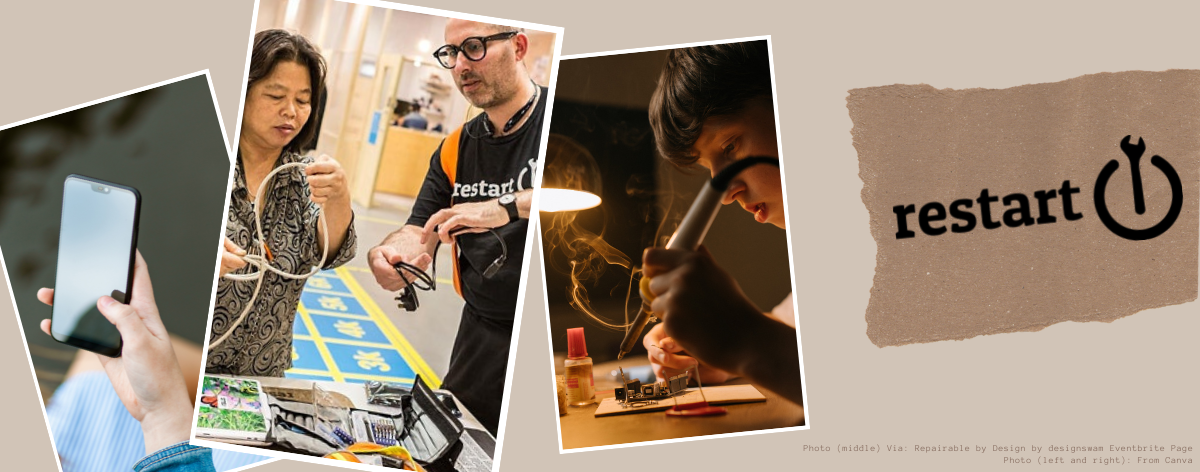First inspired by Ellen Macarthur’s TED talk, Laura Coppen has several years’ experience of working on Circular Economy …
Repairable by Design – Educating for Repair

We’ve all been there, you’ve just dropped your new mobile phone and smashed the screen. It’s only 6 months old and it’s perfectly fine apart from the cracked screen. Instead of throwing it away and replacing the whole phone, wouldn’t it be better if you could fix it yourself? This is exactly what The Restart Project aims to do.
The Restart Project helps people learn how to repair their broken electronics, and rethink how they consume them in the first place. They run regular ‘Restart Parties’ where people teach each others how to repair their broken and slow devices – from tablets to toasters, from Mobile Phones to headphones and they use the data and stories they collect to help demand better, more sustainable electronics for all.
Repairable by design was an open conversation hosted by The Restart Project and Alexandra Deschamps-Sonsino on Friday 22nd of October. The event was focused on education surrounding repair – how repair should be taught, whose responsibility it is to ensure repairability, and any action that is currently happening.
Attendees of the event came from a variety of backgrounds, from creative technology, consultancy, and design to academia and adult education. Each attendee shared their experiences with and perspective on repair in a roundtable discussion, with issues raised such as lack of repair content in UK education syllabuses, barriers to repairability, and changing cultural attitudes towards repair. The interdisciplinarity of the group led to some interesting points, allowing those from different sectors and backgrounds to share their standpoints and areas of interest.
It became clear over the course of the discussion that there is a strong case for repair training, due not only to the environmental impacts of replace-over-repair, but the economic impact on those who are not equipped with the skills needed to repair items on an individual level. However, whilst the need is clear for an increase in repair education, the question then became how to enact this. Ugo Valluari of The Restart Project went on to say that the hands-on approach of repair events is transformative for many, and is a way to spark change on an individual level. He stated that this is also an opportunity for practitioners to see how “real people” interact with products, which can be useful for designers and engineers too. Several projects and tools that Restart is working on include a 10-session programme for schools; Materials Matter, which is a guided exploration of the materials that make up a smartphone; and the Restart Podcast archive, which is a large collection of repair-related topics, many of which incorporate product design & engineering.
The event finished with attendees sharing what they would like to see from repair education over the next five years. Answers ranged from developing metrics for repairability to wanting to see repair tightly integrated into broader creative education, and embedding repair and end-of-life consideration into manufacturing. The discussion was a great opportunity for from people from a wide range of sectors with a broad range of interests and perspectives to share their thoughts on repair education, work collaboratively on broadening perspective, and build connections that will extend outside of this event.







